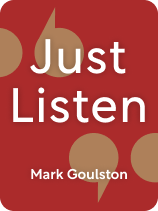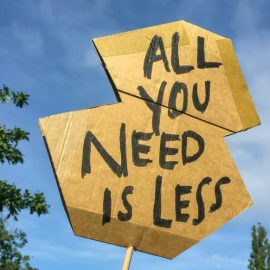

This article is an excerpt from the Shortform book guide to "Just Listen" by Mark Goulston. Shortform has the world's best summaries and analyses of books you should be reading.
Like this article? Sign up for a free trial here.
Are you a good listener? Or do you, like most people, listen to respond instead of to understand?
Listening is one of the most important yet overlooked communication skills you can develop. Most people aren’t very good at listening because they listen with the intention to respond, not to understand.
Keep reading to learn about the major psychological barriers to listening well, according to psychiatrist Mark Goulston.
1. Personal Biases
Goulston says that whether we like it or not, the things we hear and the judgments we make about other people are influenced by unavoidable personal biases. The problem is, when we judge someone based on our biases, we use preconceived knowledge that may or may not accurately represent them.
Here are two ways to manage your biases and listen more effectively:
- Memorize your biases: Goulston says we judge people based on five categories (gender, age, ethnicity, education, and emotionality). The simple habit of memorizing and staying aware of these categories as you assess someone helps you spot biases that might not apply to them.
- Use hypothetical justifications: When you have a conflict with someone, make a list of the negative words you’d use to describe them. Then, write five possible reasons that the person is acting the way they are. Next, imagine how your feelings about this person would change if any of these five things were true. Finally, have a conversation with them to discover the real reason they’re acting the way they do.
2. Dissonance
The second psychological barrier to listening is dissonance. When you’re on the same page with someone, they’re more likely to listen to you, but your interactions with others are often clouded by dissonance. Dissonance occurs when you’re perceived differently than the way you think you’re presenting yourself or when you perceive someone differently than they see themselves. This prevents you from connecting with other people, which means you’ll have a hard time influencing them.
For example, someone might think they’re being confident and interesting when they ask you out, but to you, they seem arrogant and overbearing. Because you’re perceiving the other person differently than they think they’re coming off, you reflect different emotions back to them and you never land on the same page.
Dissonance also makes us feel unheard and powerless. This can make us defensive and emotional, which prevents us from listening to others. For example, imagine a lady at a retail store who’s passionately concerned about returning a faulty product and finding a replacement. She’s frantic because her grandchild’s birthday is tomorrow and she needs a new gift. Customer service perceives her emotion as aggressive and reflects this aggression back to her, which makes her feel like she isn’t being understood, so she becomes increasingly frustrated. The difference in perception here prevents the two people from reaching a speedy and satisfying solution.
Here are two ways Goulston says we can overcome dissonance:
1) Ask people you trust to list your worst traits. When you become aware of the negative ways people are perceiving you, you can change them by consciously identifying and avoiding your negative traits on a daily basis. Because people are usually hesitant and uncomfortable giving negative feedback, you could instead ask people to list two ways you can improve. This way, you’re hearing ways you can improve in the future rather than reflecting on ways you’ve failed in the past. This is easier for them to say and for you to hear.
2) Prevent dissonance by preemptively cautioning whoever you’re interacting with that you may offend them, but that you don’t mean to. This is particularly useful when you’re engaging with people who belong to cultures different from yours.
3. Personal Limitations
Goulston says that if you hide an obvious weakness, people will think you’re dishonest. This is because if you don’t acknowledge a weakness everyone can see, people may think you’re trying to hide other issues. And if people don’t trust you, they won’t listen to you. Goulston says it’s better to be upfront about your weaknesses so you can establish trust and influence.
(Shortform note: Other ways to establish trust include accepting the vulnerable things people share with you rather than judging them. Additionally, maintain long-term trust by keeping this information private.)
When you admit your weaknesses, the following happens:
- People respect your courage and honesty.
- You demonstrate strength and adaptability.
- You feel more comfortable because you aren’t putting extra effort into covering something up. This comfort will be obvious to whoever you’re trying to influence and make them feel more comfortable and open as well.
(Shortform note: Goulston explains how being honest about your weaknesses commands respect and trust. In addition to this, you’ll also open yourself up to receive support from people who are willing to help you improve. Once people are aware of the skills you’re trying to develop, they’ll be able to give you constructive feedback on your progress.)
To acknowledge your weaknesses effectively, Goulston says to describe your personal weaknesses clearly and concisely, then explain how you’re going to handle them. For example, imagine you have irritable bowel syndrome and you’re interviewing for a job. You tell the interviewers that this problem can cause you to make spontaneous and urgent trips to the bathroom. You explain that this is a symptom you can’t control, but that it won’t get in the way of your duties at work because you plan for spontaneous disruptions by scheduling extra time to commute to work. Further, the nature of your health condition has helped you hone skills that strengthen you as a job candidate, such as adaptability to unexpected disruptions.
(Shortform note: To overcome your weaknesses, capitalize on your strengths. Do this by writing a list of your strengths and weaknesses, then grouping your weaknesses with strengths that you think could compensate for them. When you encounter situations that challenge one or more of your weaknesses, try to apply one of your related strengths to the situation.)

———End of Preview———
Like what you just read? Read the rest of the world's best book summary and analysis of Mark Goulston's "Just Listen" at Shortform.
Here's what you'll find in our full Just Listen summary:
- Why listening is the most important step in influencing others
- How to overcome the most common obstacles to listening well
- How to break down someone’s emotional barrier






